ISO 27001 Certification – A Complete Guide to Information Security Compliance
In today’s digital landscape, data is one of the most valuable assets for any organization. As cyber threats grow more sophisticated, businesses must take proactive measures to secure sensitive information. One of the most recognized standards for ensuring data security is ISO 27001 Certification.
This comprehensive guide covers everything you need to know about ISO 27001, what it is, why it’s essential, how it benefits your organization, and the steps to get certified.
What is ISO 27001 Certification?
ISO 27001 is an internationally recognized standard developed by the International Organization for Standardization (ISO) and the International Electrotechnical Commission (IEC). It outlines the requirements for establishing, implementing, maintaining, and continually improving an Information Security Management System (ISMS).
ISO 27001 provides a systematic approach to managing sensitive company information, ensuring it remains secure whether in digital, physical, or intellectual property form.
Why is ISO 27001 Important?
In an age where data breaches, ransomware attacks, and cybercrime are constantly in the news, organizations need to build trust with stakeholders, customers, and partners. ISO 27001 helps by:
- Reducing the risk of data loss or exposure
- Ensuring legal and regulatory compliance
- Demonstrating a proactive approach to data security
- Enhancing customer and partner confidence
Who Needs ISO 27001 Certification?
ISO 27001 is applicable to organizations of all sizes and industries from startups and SMEs to multinational corporations. It’s particularly valuable for:
- IT and software companies
- Healthcare providers
- Financial services firms
- eCommerce platforms
- Legal and consulting firms
- Government agencies
Any organization handling sensitive data be it customer information, employee records, intellectual property, or proprietary systems can benefit from ISO 27001.
Key Principles of ISO 27001
- Confidentiality: Ensuring that only authorized individuals have access to information.
- Integrity: Safeguarding the accuracy and completeness of data.
- Availability: Ensuring that information is accessible when needed.
These principles are enforced through a structured set of policies, processes, and controls implemented as part of the ISMS.
Core Components of ISO 27001
ISO 27001 includes:
- Risk assessment and treatment processes
- Security controls (Annex A has 93 controls under 4 themes)
- Management responsibilities
- Internal audits and continuous improvement
- Documented policies and procedures
Benefits of ISO 27001 Certification
Enhanced Information Security
ISO 27001 certification helps prevent data breaches, phishing attacks, and insider threats through systematic risk management.
Regulatory Compliance
Helps you comply with global regulations such as GDPR, HIPAA, SOX, and PCI DSS.
Competitive Advantage
Demonstrating ISO 27001 certification enhances trust among clients and gives your business an edge in procurement processes.
Business Continuity
Improves incident response and recovery processes, minimizing downtime during cyber incidents.
Cost Savings
Reduces the financial impact of security breaches by proactively managing risks.
Steps to Achieve ISO 27001 Certification
1. Gain Management Support
Top-level buy-in is crucial to allocate resources, set policies, and drive cultural change within the organization.
2. Define the ISMS Scope
Identify the departments, systems, and data types the certification will cover.
3. Conduct a Risk Assessment
Identify potential risks, assess their impact, and determine the likelihood of occurrence.
4. Apply Risk Treatment Measures
Decide whether to mitigate, avoid, transfer, or accept each identified risk and implement appropriate controls.
5. Develop Policies and Procedures
Document all information security policies, responsibilities, and procedures to ensure compliance and continuity.
6. Implement Security Controls
Implement and enforce Annex A controls such as access management, cryptography, physical security, and incident response.
7. Train Employees
Create awareness through regular training, workshops, and guidelines. Human error is a major source of breaches.
8. Monitor and Review
Continuously measure the performance of the ISMS using internal audits and management reviews.
9. Pre-Certification Audit
An internal audit checks whether your ISMS aligns with ISO 27001 requirements and is ready for external review.
10. Certification Audit
A third-party certification body conducts an official audit in two stages:
- Stage 1: Documentation review
- Stage 2: Evidence-based implementation review
Upon passing both stages, you’ll receive your ISO 27001 certification.
How Long Does ISO 27001 Certification Take?
The timeline varies based on your organization’s size, complexity, and current maturity level in terms of information security. Typically, it can take 3 to 12 months.
How Long is ISO 27001 Certification Valid?
ISO 27001 certification is valid for three years, with surveillance audits conducted annually and a recertification audit at the end of the cycle.
Cost of ISO 27001 Certification
Costs can vary widely depending on:
- Organization size
- Scope of certification
- Internal vs. external resource involvement
- Certification body fees
For small to mid-sized businesses, costs may range from $4,000 to $15,000+.
Common Challenges in ISO 27001 Implementation
- Lack of management support
- Limited internal expertise
- Insufficient employee training
- Overlooking the human factor in security
- Misalignment between ISMS and business goals
These challenges can be mitigated by working with experienced ISO consultants.
ISO 27001 vs. Other ISO Standards
Standard | Purpose | Focus |
ISO 27001 | Information Security | Confidentiality, Integrity, Availability |
ISO 9001 | Quality Management | Customer Satisfaction, Product Quality |
ISO 22301 | Business Continuity | Disaster Recovery, Operational Resilience |
| ISO 20000 | IT Service Management | IT Service Delivery, SLAs |
Each standard has a distinct focus, but they can be integrated for broader organizational compliance.
Why Choose a Consultant for ISO 27001 Certification?
Working with an expert consultant can:
- Speed up implementation
- Ensure audit readiness
- Reduce errors and rework
- Provide employee training
- Customize documentation and controls
ISO 27001 Certification Success Stories
- Google Cloud and Microsoft Azure are ISO 27001 certified, reassuring clients of their cloud data protection practices.
- SMEs and SaaS startups gain more client trust and win larger contracts after certification.
- Hospitals and health-tech firms leverage ISO 27001 to align with HIPAA and protect patient data.
Final Thoughts
ISO 27001 Certification is not just a badge it’s a comprehensive strategy to protect your business from growing cyber threats. Whether you’re a tech startup, enterprise, or service provider, adopting ISO 27001 proves your commitment to information security and gives you a competitive edge in today’s trust-driven marketplace.
By implementing ISO 27001, you’re not just meeting global standards, you’re building a resilient future for your organization.
FAQs About ISO 27001 Certification
1. Is ISO 27001 mandatory?
No, it’s not legally required, but it’s often a prerequisite for doing business with security-conscious partners and in regulated industries.
2. Can small businesses get ISO 27001 certified?
Absolutely. ISO 27001 is scalable and can be tailored to the size and structure of small businesses.
3. Does ISO 27001 cover cloud security?
Yes. It includes specific controls for managing cloud services and securing outsourced systems.
4. What happens during the audit?
Auditors review documentation, interview staff, and examine how well the ISMS is implemented across your organization.
5. How often should risk assessments be done?
Risk assessments should be performed regularly, at least annually, or whenever significant changes occur in your systems or processes.



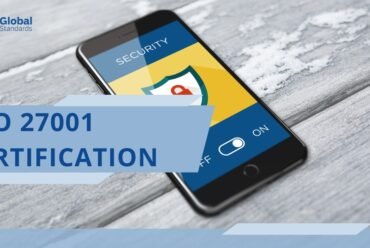
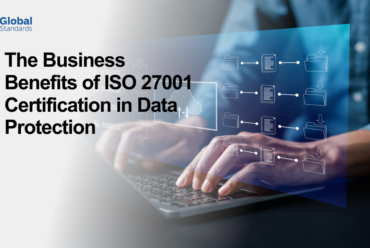
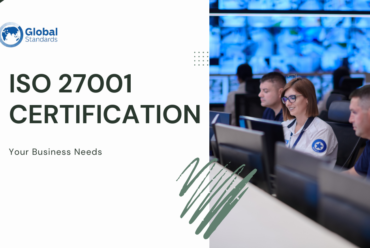
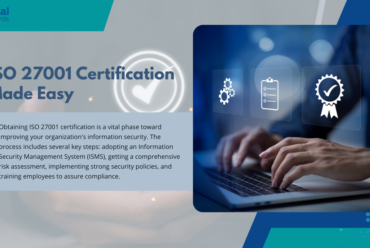
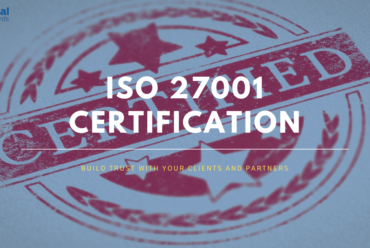
No Comments